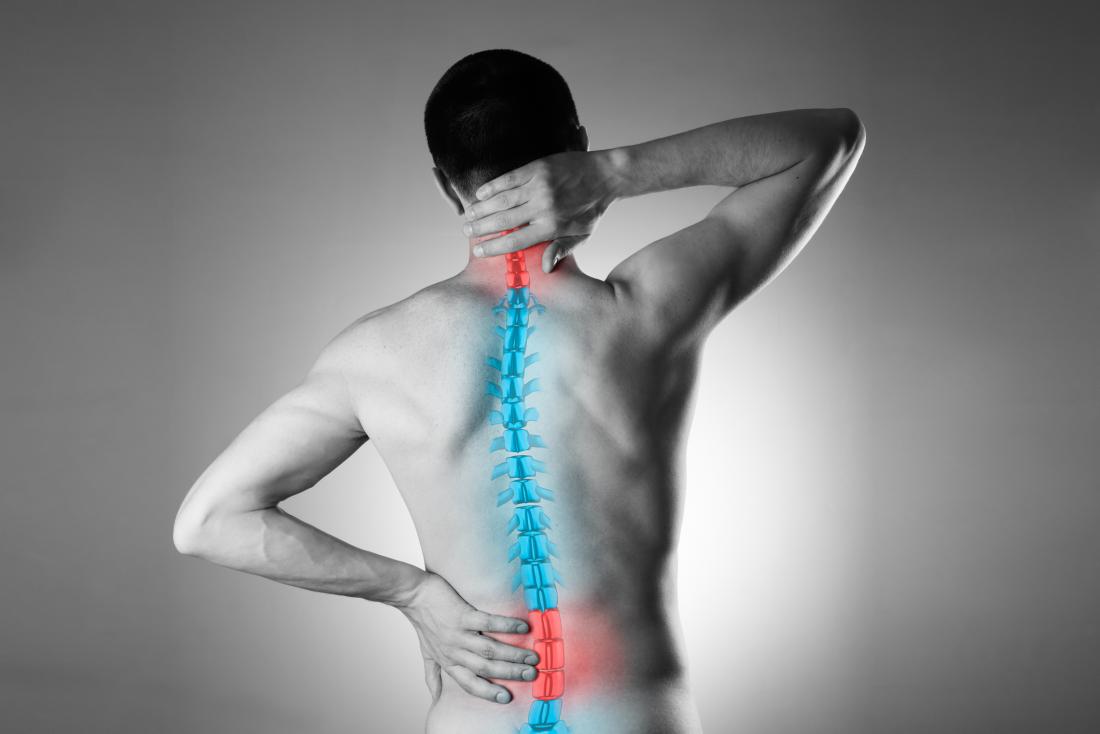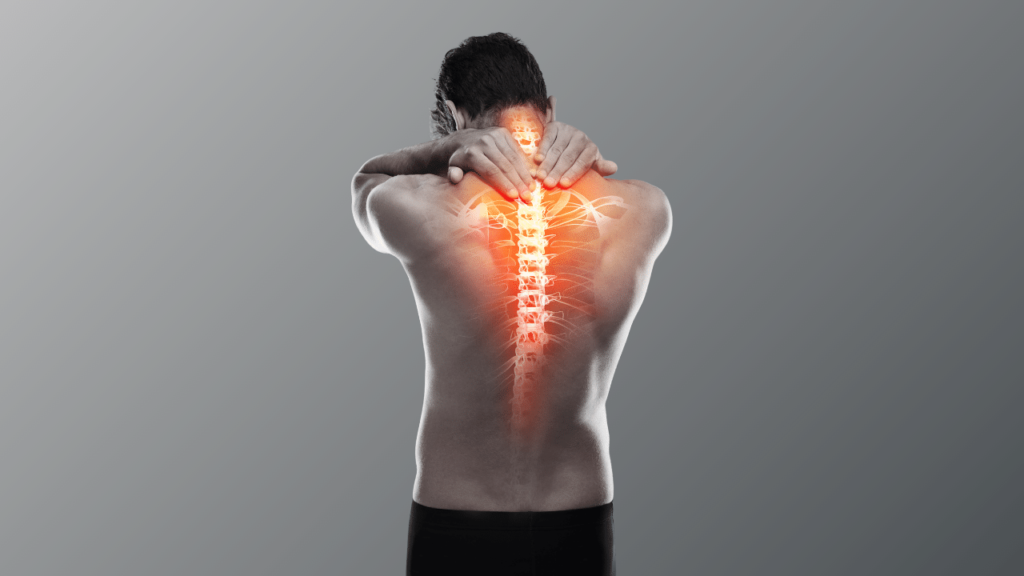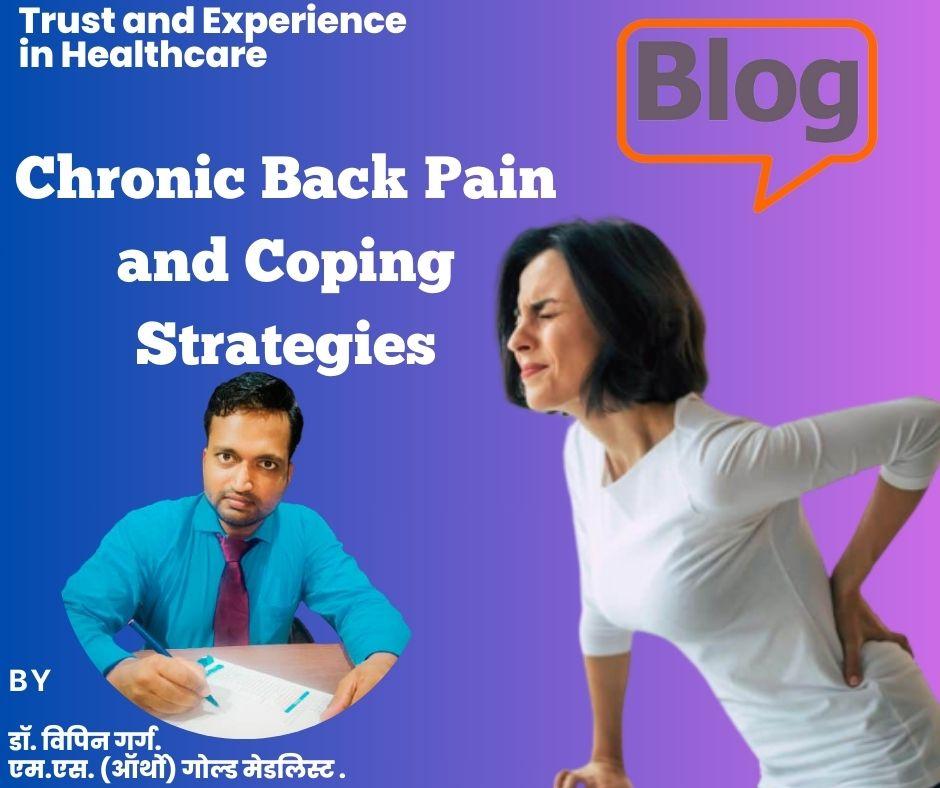Chronic Back Pain and Coping Strategies: Chronic back pain is more than just a physical ailment; it can have a profound impact on a person’s mental and emotional well-being. In this blog, we delve into the often-overlooked psychological aspects of chronic back pain, exploring its effects on mental health and providing coping strategies for those navigating this challenging journey. We can discuss more regarding “Chronic Back Pain and Coping Strategies”.

Understanding the Psychological Impact
**1. Depression and Anxiety:
Living with persistent pain can lead to feelings of hopelessness, helplessness, and sadness. Over time, these emotions can manifest into clinical depression or anxiety disorders.
**2. Isolation and Social Withdrawal:
Chronic pain can disrupt one’s ability to engage in social activities, leading to isolation and withdrawal from friends and family. The fear of being a burden or the anticipation of pain can contribute to social avoidance.

**3. Sleep Disturbances:
Pain can interfere with sleep, and the resulting fatigue can exacerbate the emotional toll of chronic back pain. The cyclical nature of pain and sleep disturbances can create a challenging cycle to break.
**4. Impact on Self-Esteem:
Limited mobility and the inability to perform daily tasks can erode self-esteem. Individuals may struggle with a sense of loss, mourning the life they once had.
Coping Strategies for Psychological Well-Being
**1. Mind-Body Techniques:
Mindfulness Meditation:
Mindfulness can help individuals become more aware of their thoughts and emotions, fostering a sense of control and acceptance.
Deep Breathing Exercises:
Controlled breathing can reduce stress and promote relaxation, helping to manage the emotional toll of chronic pain.
**2. Counseling and Therapy:
Cognitive-Behavioral Therapy (CBT):
CBT can help individuals reframe negative thought patterns and develop coping mechanisms for dealing with chronic pain.
Support Groups:
Joining a support group provides an opportunity to connect with others facing similar challenges, reducing feelings of isolation. We can discuss few more regarding “Chronic Back Pain and Coping Strategies”.
**3. Physical Activity and Rehabilitation:
Low-Impact Exercises:
Engaging in activities like swimming or walking can improve mood and reduce pain levels.
Physical Therapy:
A structured rehabilitation program can not only address physical symptoms but also provide emotional support.
**4. Medication Management:
Antidepressants or Anxiolytics:
In some cases, medication may be prescribed to address underlying mood disorders associated with chronic pain.
Pain Medications:
Managing pain effectively can have a positive impact on mental health, improving overall well-being.

Read More:
FAQs (Frequently Asked Questions)
Q1: Can chronic back pain lead to long-term mental health issues?
Yes, chronic back pain has been linked to an increased risk of developing conditions such as depression and anxiety. It’s crucial to address both the physical and psychological aspects of pain for comprehensive care. We can discuss some more regarding “Chronic Back Pain and Coping Strategies”.
Q2: How can family and friends support someone with chronic back pain?
Offering empathy, understanding, and practical assistance can make a significant difference. Encouraging open communication and being patient are essential components of support.
Q3: Is it common for chronic pain patients to resist seeking psychological help?
There can be a stigma associated with mental health issues, and individuals may fear being misunderstood or judged. It’s essential to normalize seeking mental health support as a valuable part of overall well-being.
Q4: Can coping strategies for chronic pain improve overall quality of life?
Yes, by addressing the psychological impact of chronic back pain, individuals can experience improvements in mood, sleep, and daily functioning. Integrating coping strategies into a holistic treatment plan can enhance overall quality of life.
Q5: Are there specific coping strategies for dealing with the uncertainty of chronic pain?
Developing resilience and a proactive mindset can help individuals navigate the uncertainties of chronic pain. Learning to adapt to changes and focusing on what can be controlled are key aspects of coping.

Conclusion
Recognizing and addressing the psychological impact of chronic back pain is an integral part of comprehensive care. By implementing coping strategies that encompass both physical and mental well-being, individuals can enhance their overall quality of life and reclaim a sense of control over their health. If you or someone you know is dealing with chronic back pain, consider reaching out to healthcare professionals who can provide personalized guidance and support on this challenging journey. Remember, you are not alone, and there is help available for both the body and the mind.
Book Your Consultation
Website: https://tinyurl.com/yyzvwmck
Email: info@klmgrou p.org
Ph: 0751-4000721,Mob: 7804826825
Address: 12, Saraswati Nagar, University Road, Near Silver Estate, Thatipur,
Address Link: https://g.page/r/CQ0WqKLEXPWeEAE Powered By Argusdna

